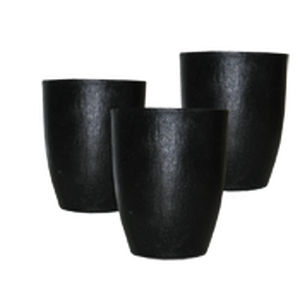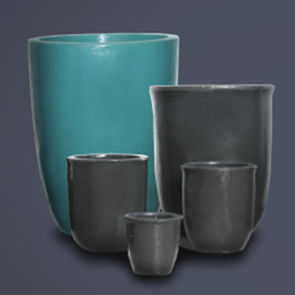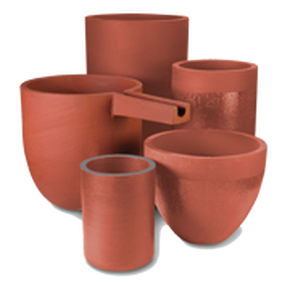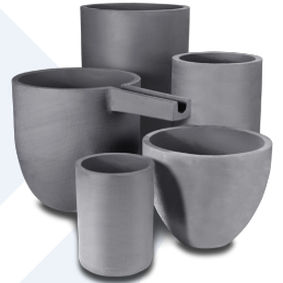
- Production Machines
- Other Manufacturing Equipment
- Ceramic crucible
- Morgan Molten Metal Systems
Silicon carbide crucible Iso-Alustar Z2ceramic
Add to favorites
Compare this product
Characteristics
- Options
- silicon carbide, ceramic
Description
Iso-Alustar Z2 is a premium quality hybrid ceramic bonded clay graphite crucible with a high silicon carbide and graphite content that is manufactured through an advanced iso-static pressing process. Iso-Alustar FL is a modified version of Iso-Alustar Z2 with excellent performance under heavy flux usage.
Morgan Molten Metal Systems uses a proprietary processing technology that results in a product with a very homogenous and high density structure. This allows the crucible to obtain superior thermal conductivity over its entire operating temperature range, high mechanical strength and erosion resistance along with good thermal shock resistance. These properties translate into a durable and robust crucible with excellent performance characteristics in higher temperature environments.
Iso-Alustar Z2 are designed to perform exceptionally well to melt and hold copper alloys in induction and fuel-fired furnaces as well as in zinc distillation applications. Iso-Alustar Z2 can also be used in precious metal melting applications.
Iso-Alustar Z2 Typical Metal Casting Temperature
900°C - 1400°C (1652°F - 2552°F).
Very good thermal conductivity.
Very good resistance to chemical attack.
High mechanical strength and good erosion resistance.
Good thermal shock resistance.
High refractoriness.
Iso-Alustar Z2 crucibles are finished in a green colour.
Iso-Alustar Z2 crucibles are available in a range of shapes and sizes to suit most end user requirements.
Catalogs
Morganite® Crucibles
32 Pages
Related Searches
*Prices are pre-tax. They exclude delivery charges and customs duties and do not include additional charges for installation or activation options. Prices are indicative only and may vary by country, with changes to the cost of raw materials and exchange rates.

















